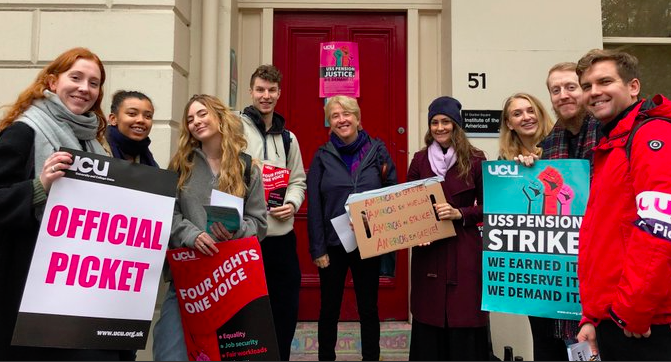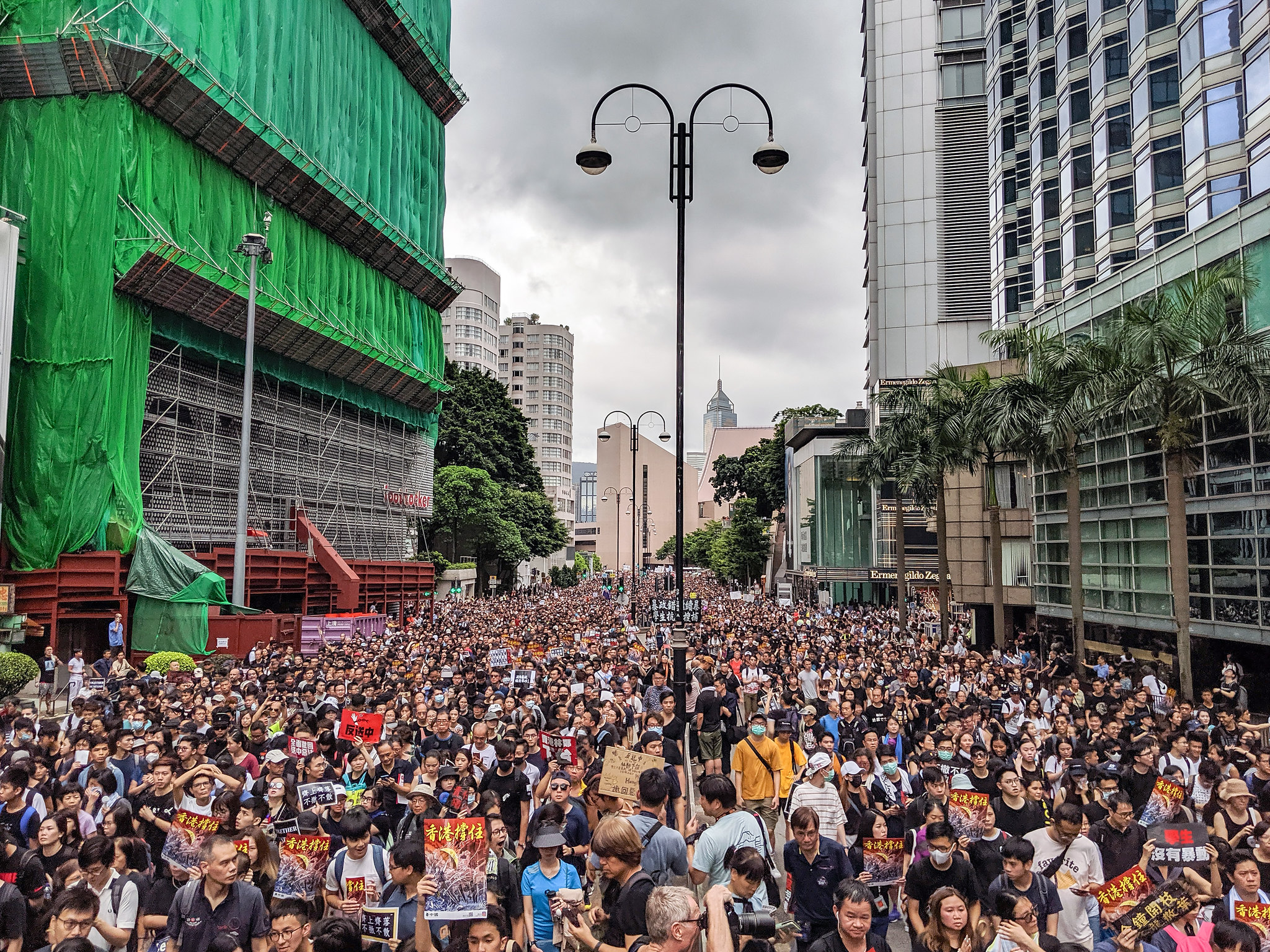In an eponymous public debate held late last year at the LSE, several international scholars came together to discuss how academics fleeing authoritarian regimes are seeking refuge in Western universities, where academic freedom is no longer guaranteed/increasingly at risk. Esin Düzel reports.
In 2019, people rose up against oppressive regimes and the neoliberal destruction of livelihoods and the earth, and as we have seen so far, states respond violently to such global insurgencies. We commonly identify the global rise of authoritarianism by bleak conditions in the areas of human rights, freedom of press, and freedom of political opposition. On 29 November, a public debate entitled Global Attack on Academic Freedom brought together a panel of scholars who live(d) or work(ed) in regions at the forefront of the authoritarian rise – China, India, Turkey, Egypt, and the UK – to raise a less visible aspect: the threat to academic freedom in these regions. Probably due to the institutionally and culturally privileged positions academy holds (or is supposed to hold in an ideal world), deteriorating academic freedoms have not attracted enough attention. Yet such attacks are a sign of and the path to attack on other freedoms. The panel was full of insights about the intricacies of the lives of academics under authoritarianism and possible ways of building solidarity.
 The panellists in discussion/Debbie Challis, LSE Library
The panellists in discussion/Debbie Challis, LSE Library
One clear observation from the panel was that even though it is a bit more subtle in the UK, the targeting of academics occurs in surprisingly similar ways. States impose vague criteria for the academics to abide by such as “academic traditions” in Egypt or “counter-terrorism agendas” in the UK. Academics are forced to take sides that are articulated within a militarist nationalist framework, such as “you are either with the state and the nation, or you are with the terrorists” logic in Turkey. Any signs that could be read as an affiliation with liberal, socialist, feminist, or otherwise alternative worldviews are criminalised, even if that is having the full works of Marx and Engels or War and Peace by Leo Tolstoy on the bookshelf, as in India. One therefore wonders not if, but how these states emulate each other in increasing the bar of oppression.
The panellists
- Lori Allen – Senior Lecturer in Anthropology, SOAS
- Ahmed Ezzat – PhD candidate, Cambridge and human rights lawyer
- Hyun Bang Shin – Director, Saw Swee Hock South Asia Centre and Professor of Geography and Urban Studies, LSE
- Subir Sinha – Senior Lecturer, SOAS
- Seçkin Sertdemir – Fellow in Contemporary Turkish Studies, European Institute, LSE
- Esra Özyürek – Chair for Contemporary Turkish Studies, European Institute, LSE
- (Chair) Monika Krause – Associate Professor in Sociology and Co-director, LSE Human Rights
Civic death was the concept that the presenters Seçkin Sertdemir and Esra Özyürek proposed to explain the condition of the academics dismissed from their positions by emergency decree in Turkey. Following the 15 July 2016 coup attempt, the Justice and Development Party (AKP) regime led by Tayyip Erdoğan issued several such decrees whereby public officers deemed to be oppositional or belonging to a religious sect, called Gülenists, were dismissed their positions overnight. Different from civil death, Sertdemir and Özyürek argued, civic death entails stripping academics of their civil as well as political rights. That included forbidding them from public-sector employment, blacklisting them to prevent private-sector employment, confiscating their passports, and publicly shaming them by publishing their names in local newspapers linking them to scurrilous stories and headlines. It was painful to hear that to escape this dehumanisation and “being rendered disposable,” some academics joined others who escaped Turkey on boat and became refugees. As we know well, this is a route that has been a thin line between life and death.
For those who cannot or choose not to leave, the situation continues to be dire. Today, academics living under violent authoritarian states are finding themselves making impossible choices: whether to continue working under increasingly hostile conditions and forsake critical thinking, or to quit academia altogether throwing away years of hard work and sacrifice. Furthermore, as Hyun Bang Shin emphasised, in China, there are invisible forms of oppression. Academics are not only being surveilled by the government, but also by students who act as government agents. The speakers noted increased student vigilantism in China, Turkey, India and elsewhere. Internationally trained scholars are not given access to the necessary research data in China, as they are seen as ‘suspicious’ in terms of their expected loyalty to the state. Unless academics take obvious pro-government positions, they have to remain in the shadows. They face the dilemma of producing a paper for a critical journal and burnishing their reputation, or publishing in a less critical journal compromising on academic rigour. As Bang Shin put it aptly, “If you are both an academic and activist, you don’t have the time to be prolific.” In India, Subir Sinha explained how pro-government academics seem to dominate the field by publications on space travel in ancient India that disseminate fake history and science.
What is to be done? Lori Allen’s presentation on the constraints of academia in the UK provided one perspective that obstructs building of transnational solidarities. She explained that three conditions in the UK – neoliberal war on the poor, the war on terror, and the war on immigration – restricted academics living in the relatively more privileged sites of the West to individualised struggles for survival. Any symbolic or otherwise political attempt to extend solidarity to the academics in Palestine, for example, clashed with one or more of those conditions, and that caused backlash and further restrictions on academic freedom in British higher education institutions. Muslim and Dalit students are under attack in India as Sinha mentioned, particularly due to such securitising policies. Or international collaborations are subjected to security screening by these governments, as Ahmed Ezzat explained, under the guise of national security concerns. In such an environment, academics become more distant from each other.
On the other hand though, the panellists noted, the spaces such as this panel debate, and other small acts of solidarity, caring for and respect to each other was important and all the more urgent. I found Hyun Bang Shin’s warning particularly important: any act of solidarity with our colleagues needs to be respectful of the intricate balances they are trying to maintain. In such environments where the academics are trying to live and make difficult choices, they might wish to remain invisible or low key, not act heroically in the narrow sense. Boycott campaigns are an example of a fruitful but also very sensitive example of such delicate complexity. There is no easy way forward, but it requires very personal ways of establishing deep and constant connections with our colleagues and weaving solidarity as a life-giving breath.
____________________________________________________________________________________________________________________________________________________________________________________________________
This post is opinion-based and does not reflect the views of the London School of Economics and Political Science or any of its constituent departments and divisions.
____________________________________________________________________________________________________________________________________________________________________________________________________





1 Comments